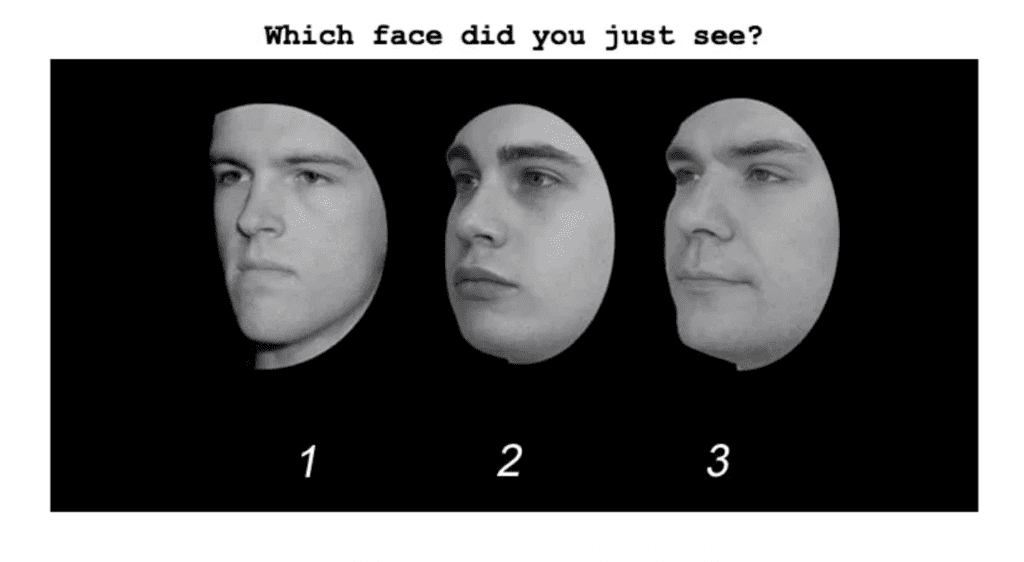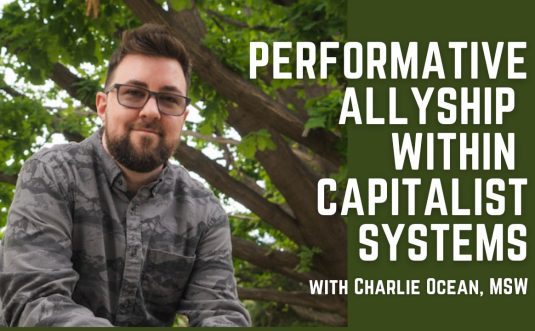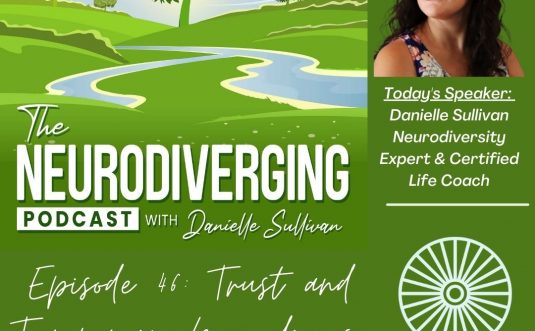Prosopagnosia, also known as face blindness, is very common among autistic and ADHD people. In this episode, I’m discussing what face blindness is, how to recognize it, and how it’s affected my own life.
? Rather listen than read this post? This post is based off the transcript of Episode 18 of the Neurodiverging Podcast! Listen on Apple Podcasts | Spotify
A Face Blindness Screening
To start off today, I’m going to ask you to read this list of seven statements. And, while you read them, think to yourself whether they apply to you and your life, or not. Ready?
1 – You have failed to recognize a close friend or family member, especially when you weren’t expecting to see them.
2 – When you meet someone new, you try to remember their hairstyle or distinctive feature rather than their face.
3 – Do you confuse characters in movies or on television more so than other people?
4 – You have failed to recognize yourself in the mirror and or have difficulty identifying yourself in photographs.
5 – When someone casually waves or says hello in the street, you more often than not don’t know who they are.
6 – When someone gets a haircut, you may not recognize them when you see them again.
And 7 – You have difficulty recognizing neighbors friends, co workers clients, schoolmates, etc. out of context.
What did you think about those questions? If you recognize yourself in these seven statements, you might have prosopagnosia, also known as face blindness.
The list above was compiled by the good folks at testmybrain.org with the help of the Yahoo Face Blindness group. So, it is not a scientific measurement or a perfect self-diagnostic tool. But, it was created by people who are face blind by themselves, so it’s a really good starter.
Here’s What You Should Know About Face Blindness
Face blindness is very common in autistic folks, and to some extent, in ADHD folks.
I myself am “mildly” face blind. In my case, I can recognize family and friends who I see often or have known for a really long time, and/or people that I’ve had a chance to purposely memorize, especially if they’re in an environment where I usually see them.
But, if you’re someone I’m not expecting to see, in a place I don’t usually see you, good luck to us both!
So today, I’d like to talk a little bit about:
- what face blindness is
- what we know about it so far
- other conditions that commonly co-occur with it
And then, I’d like to talk a little bit about my experience with face blindness myself, how it’s affected me, and how it compounds some of my autistic traits in ways that you may not expect if you’re not looking for them.

What Is Prosopagnosia?
Prosopagnosia is an impairment in the ability to recognize the faces of people who should be familiar to you. It’s not related to eyesight at all, to the physical structure of your eye or the nerves associated with it.
Rather, it seems to be an issue in the way the brain processes visual information about a face. It’s not that you don’t know who someone is, it’s that you can’t reliably link their face to who they are.
Face blindness is just one subtype of associative visual agnosia. Associative visual agnosia is the general term for an individual’s inability to identify objects, even though they can perceive them with their senses, and have a general understanding in their head of what the object is. So, for example, a person can see the car and knows what a car is, but cannot correctly identify the object in front of them as the car.
These issues are not due to a deficit in vision or language or memory or intelligence.
Issues That Commonly Co-Occur with Face Blindness
There are several kinds of subtypes of associated visual agnosia. If you are dealing with face blindness, you may also be struggling with:
- an inability to distinguish different colors
- an ability to recognize multiple objects in a scene
- an inability to process the spatial layout of an environment, including landmarks
- difficulty recognizing buildings and places
- difficulty building mental maps of a location.
- I have this in a mild sense. Once I’ve been to a place and specifically taking the time to memorize it, I will know it for forever. But if you bring me to a state park, a mall or a new town, and I haven’t had a chance to study a map of it ahead of time, I will get myself turned around and lost in five minutes flat, no matter what!
- an inability to read
- an inability to judge or determine the orientation of objects
- I also have this one! My partner or my son have to pack the car for vacation because I cannot figure out how the suitcases fit in the trunk.
- an inability to understand pantomimes or gestures. This is also super common in people who are autistic.
How Is Prosopagnosia Diagnosed?
Currently, an official diagnosis of face blindness is based on your performance on tests of face recognition and learning.
To be honest, most of the people I know with face blindness, including myself, don’t bother with an official diagnosis. Recognizing face blindness can help you create strategies to manage it in your personal life, but there isn’t much benefit to an official diagnosis except for participating in research on face blindness, which is great if you want to do it.
If you are struggling with more than just face blindness, then it might be more worth it to pursue a professional diagnosis. It’s definitely a personal decision.
If you do pursue a diagnosis, you’ll be shown pictures of faces, and you have to say whether they’re familiar to you or unfamiliar to you. One test includes famous faces that are well known from popular culture that you have to try to differentiate from very similar but non-famous faces. A second common test has you memorize faces of people you don’t know during the testing session, and then you try to pick them out from the crowd a couple of minutes later.
These two tests are both available online for free if you’d like to test yourself:
Everyone has trouble recognizing people occasionally, but prosopagnosia is a more serious and persistent issue. Typically, face blindness will cause some trouble in daily life, like trouble finding your friend in a crowd or following a character in a movie.
Some people with more severe prosopagnosia can sometimes have other visual or memory concerns, because faces aren’t just about identifying people. Faces also have important information, like what emotion someone is feeling, what they’re currently interested in (based on what they’re looking at or away from), if they’re interested in further conversation with you, etc.
With severe face blindness, people will often have trouble recognizing everyday objects too, like cars or pets.
So how do you know if you or your autistic loved ones are dealing with face blindness?
First, if you feel that you have persistent trouble recognizing familiar faces in day-to-day life, then you might have face blindness. If you want to learn more about your face recognition ability, the first step might be to take an online test, like the Cambridge face memory test.

The Limits of Current Face Blindness Screenings
I do want to point out that there are some problems with current screenings. First, the people that you’re looking at in the test are not real people, so it’s okay to stare at them and memorize their specific facial features, which is what I did when taking this test.
In real life, if you stare at somebody for a long time, looking at the crook of their nose so that you can memorize them for later, they will freak out at you. It’s not cool to stare at people in real life. On the test, though, you can stare at somebody for a full two minutes to minutely analyze their facial features.
So, you may do better on a test than you would do in a real-life situation with a real person.
Additionally, in the screening, you only are focusing on the face. You’re not also focusing on being a social person in a real life situation. In real life, you’re not just standing there with a person trying to recognize them, but you’re usually having a conversation with them. You’re required to maintain eye contact, to understand gestures, to gesture yourself.
All of these things take real energy for many autistic people. And in the screening, you are not required to perform that way, because you are literally just looking at a screen. So, you may have more trouble again in real life than you do on the screening.
Third, the screen people are not moving. They’re not changing environments, their hairstyles, their glasses, frames, their clothing, any of that.
In my personal experience of face blindness, if you change your glasses, even if I’ve known you for years, I will have trouble recognizing you. If you cut your hair, if you usually don’t wear earrings but now you are, if you’re wearing colored contacts, if you’ve done something very significant with your eyebrows, I might not recognize you.
And I often also have trouble in movies, recognizing similar looking characters, especially if they change outfits or hairstyles throughout the movie, or makeup – if you usually wear a pink blush, and you switch to a darker red blush, I might not recognize you.
So, these are issues that will come up in real life that won’t come up in a face blindness screening, because in the screen, you’re just looking at one face in one environment. It’s not shifting or changing in any way, and you’re not performing at it. You’re not using extra energy at it.
Therefore, I do want to caution you that if you do a face blindness screening, and it says you’re fine, or you have maybe mild face blindness, but you are still feeling like you are having problems in everyday life, and that you’re not recognizing folks that you feel like you should recognize, I would consider that you might still have some kind of level of face blindness.
Maybe it’s not severe, but it may still exist. And it still might be helpful for you to think through it and figure out if you need to be changing anything in your everyday approaches to help support that, and help you recognize people better.
In summary, taking something like the Cambridge test is a really good start, and it’s very useful for research. But, it’s not totally accurate and it’s not necessarily a useful screening tool for the individual to self-diagnose.
My Experience of Face Blindness (as an Autistic)
I want to also talk next about my own experience with face blindness, in case this helps anybody out there figure out if they’re face blind.
I can’t recognize people out of context, but I can memorize photographs if I put some effort into it. When I’m asked to envision a family member’s face, it’s honestly pretty blurry. I can think about their haircut, or their skin tone, or their Italian nose. But usually, I’m really thinking about a picture I’ve seen of them recently, rather than a true memory of the individual person.
I’m very good at remembering voices, and I rely on voices very heavily in everyday life to identify who I’m talking to. I very often recognize people once I hear them speak, but until a person has spoken, I probably don’t know who they are.
I know who my kids and my partner are, as I see them every day, so their faces are reinforced for me often. But when I think about, for example, my mother, who lives an hour away and whom I see very often, I’m really remembering a photograph of her.
In fact, I keep photographs of my family members around the house purposefully, man,y many photographs over different years and with people’s different hairstyles and different makeup, just so that I’m getting a variety of memories or … memorizations, I guess, of their faces.
If I did not have those photographs around and you asked me to tell you about what my sister looks like, I could give you her hair color and her eye color and her skin tone and some sort of very general characteristics, because those are things that are easy to memorize. I know she has blue eyes.
But, I can’t actually see her eyes in my head. I can’t thinking about it right now. When I try to envision her face, I can get a blurry profile and maybe the length of her hair. But I can’t really think of what her face looks like without looking at a photograph.
Again, this doesn’t mean I won’t recognize my sister when I see her, but it will take a little bit more effort than I feel like it would for somebody else.
Now, somebody who:
- I only know from church
- is my partner’s friend but I don’t see them that often
- is the mother of a child that my child goes to school
… it is much less likely I have memorized anything about their face.
My sister obviously is my sister. I know what her eyes and her hair is like, even if I can’t envision it right now. I’ve memorized her and I’ll be able to apply that when I see her again. But, kid’s-friend-from-school’s-Mom? I have no idea! Unless I specifically have a long conversation with her and specifically notice something about her jewelry, her skin tone, her hair, I’m not going to be able to recognize her again.
Not being able to recognize her doesn’t mean I wasn’t enjoying our conversation, or I didn’t enjoy meeting her. It’s not like the thing where you just forget a stranger because you didn’t care about them, or they didn’t impact you. She might have impacted me very strongly! But it just doesn’t stick in my brain. It’s just not something my brain can do. Unfortunately, because it would solve a lot of problems in my life, I’ll tell you!
Autistic Social Troubles Are Compounded by Face Blindness
There are some real life issues that come up with face blindness that I think are important to talk about. Face blindness is so common in autistic people, and I honestly think that it contributes to a lot of the problems that we have socially, in a way that maybe hasn’t been recognized as widely as it could be.
Eye Contact
For example, like I said, I recognize people by their voices. It makes me really, really good at accents – I can usually tell you where somebody is from roughly by listening to their voice – because I have to pay attention to voices because I can’t remember faces.
However, because I’m thinking so hard about your voice, I’m even less likely to make eye contact when I initially meet you. If I don’t memorize your voice right now, I will not recognize you the next time I see you, after all. So it’s another reason that I’m not making eye contact, on top of the fact that many autistic people have trouble with eye contact to start with.
I don’t often have trouble with eye contact with people I’m familiar with, unless I’m very, very stressed out. That’s just my personal experience. But, if I’m learning a voice, then I’m not looking at your eyes. I’m focusing on hearing.
Creating Community Connections
Another reason that face blindness can cause real life problems for autistic people is that it’s inhibiting our ability to create community.
For example, I used to teach, and I couldn’t recognize my students outside of the classroom. I knew them in the classroom fine! I knew 25-30 names just like I was meant to. I recognized them as individuals in the classroom, even if they sat in slightly different locations within the room.
But, if they left that classroom, I could no longer recognize them. I remember once a student came up to me in a train station and said hello, and it took me 10 minutes after he left to realize where he was from. That was probably embarrassing for him! He probably thought that I didn’t care about him or know who he was!
But I could quote you from the papers he’d written. I do have a good memory, I just couldn’t recognize him out of context, and it was really difficult for both of us. It definitely inhibited our relationship in a way that I wasn’t happy about, and I doubt he was either.
Not being able to recognize people outside of context causes people to think that you really don’t care about them, when actually I remember all sorts of things about them.
This also comes up with me for neighbors. I have trouble recognizing my neighbors out of context. I’ve lived in the same house for 10 years, neighbors come and go, but many of them have been on the cul de sac for just as long as I have.
If I see them in the cul de sac, I will recognize them. If I see them in the grocery store, I might recognize them. If I see them an hour away in another town, I will not recognize them because they’re not where they’re supposed to be. My brain just doesn’t want to accept that sometimes people are not where they’re supposed to be.
This means that my neighbors, who have known me for 10 years, may or may not think that I care about them – because if I can’t recognize them half the time, why should they think I care about them or know who they are or know anything about them?
But again, I can tell you a lot of facts about them. I remember fondly many conversations with them. I just don’t have the ability to recognize them consistently. And that’s really unfortunate.
One thing I have to do to combat this somewhat is asking friends to schedule calls ahead of time, so that I know who I’m talking to. This is especially common nowadays with Zoom being so prevalent. If a friend were to just Skype me, I might not recognize who they are, especially if I wasn’t ready for it.
I Have Trouble Tracking Actors in Live-Action Film
I prefer TV shows or rewatching movies I’ve already seen to new media. Some of this is just comfort rewatching or preferring media I’m familiar with. But some of it is also that I have legitimate trouble differentiating human faces on television.
Cartoon characters may be drawn in a similar style, but they tend to have a very dramatic profile, especially the main characters. A cartoon character will have a profile or a silhouette that you just immediately recognize.

On the other hand, movie and television actors are all made up to look the same, often have very similar haircuts, and have a certain kind of Hollywood beauty style that is just the accepted body type and facial feature type of whatever country they’re in, or whatever time period they’re in. To someone like me, they all look the same.
I am much more successful identifying people in real life, with people who look like real people. Your body type, the asymmetry of your face, those are traits that can really help me identify you in real life.
On TV, nobody is asymmetrical (or if they are, they’re made up to look like they aren’t). It’s very rare to see extremely fat people or even average size people on television. It’s still very rare that you see a wide range of skin tones on television. On TV, if everybody is a white guy with blond hair, and that kind of popular strong jaw line, I know I have no chance of tracking them through a movie. I have no chance.
Not all white men are superheros.
But almost all superheros are white men–who look confusingly alike. #Moviessowhite pic.twitter.com/mM0nXQJebw— omid safi (@ostadjaan) May 10, 2017
This may be a less important reason to support diversity in your media, but a reason nonetheless!
Building Trust In Conversation
The last thing I just want to mention is regarding social trust.
I have a lot of social anxiety and social issues. I do sometimes mask to look neurotypical for a period of time. But one of my major issues that’s related to face blindness is that initially, when I’m learning to talk to somebody new, I have very slow processing overall in the beginning of the conversation, while I figure out who you are. Then, I have to try to play catch up and prove myself to you for the rest of the conversation.
Even if it takes me a whole two minutes to identify you and figure out in what context I usually see you, that’s two minutes of time that you were probably pretty sure that I didn’t know who you were. So then I have to spend the rest of the conversation sort of proving, “No! I do know who you are, here’s six facts about you!” Here’s evidence that I recognize you, that I care about you, that you’re important to me, because the first two minutes of the conversation, I may not have been able to provide that proof for you.
So, you may have entered the conversation excited to see me, and if I didn’t respond in kind, because I didn’t immediately recognize you, there’s repair work that has to be done before I can gain back your trust.
To go into every single conversation, starting out with less trust than existed before the conversation is really hard for an autistic person. We’re already working so hard to build neurotypical trust, to create neurotypical trust.
If you can’t trust that I know who you are, I understand why that would be off putting to you, and I understand why it’s a problem for you. But, it also makes me have to work harder to prove every single time that your trust in me is worth the risk, and that I do value you.
I’m not even against rebuilding that trust every conversation. But it is extra work. And I just want to point that out. So, that’s another reason to just give your autistic friends the benefit of the doubt, please! If they seem like they’re processing slowly, if they seem like they’re confused in the beginning of a conversation, if they seem like they don’t know who you are, probably they just need a couple more minutes to catch up. That really does happen.
How Does Face Blindness Affect You?
Those are the main ways that face blindness affects my everyday life. I would be really interested to know, if you identify as somebody who’s face blind, if you have other ways that it affects your everyday life. Please let me know!
I think that this is something that doesn’t get talked about enough, and I really hope that this podcast will go a little ways in helping you think through it, and educate yourself a little bit about it.
Limits of Current Research
Among autistic and ADHD folks, it’s something like 1-2% of the population that are somewhere between mild and severely face blind. That is a significant portion of autistic folks as well.
I also want to say most of the studies that have been done on face blindness are tiny sample sizes. We’re talking like 30 people. I’m so thrilled people are doing work on this and I don’t want to discourage anybody from doing research on this, because we desperately need the research. However, what exists thus far in the way of research is of limited use.
Face Blindness Is Partly Hereditary
I will say that it does seem like, from the research that exists, that face blindness has some genetic propensity and is, in some way hereditary. I am not sure, but I am relatively confident that my autistic son is at least mildly face blind as well. He does a lot of the things I do to recognize people. He often doesn’t recognize me at first glance until he sees my hair or my clothes!
I put my hair in a high ponytail last week when I usually wear in a low ponytail, and he immediately noticed that my hair was different, and wanted to know why it was different. He uses photographs, voices, and gestures to recognize people. He uses makeup and jewelry.
I don’t think he’s completely face blind by any means, but he’s not focusing on faces the way I see non-face blind people do. He is not remembering faces the way I think that neurotypical people tend to. His process for identifying people much more resembles my process for identifying people.
Your Autistic Child’s Social Difficulties May Be Compounded by Face Blindness
Even if you are not face blind, even if none of this seems relevant to you, if you have a child who has ADHD or who’s autistic, it’s worth checking in with them, or trying to pay attention to how they’re doing with faces.
I’ve definitely encountered some parents who thought that their children were having social issues when actually, it was that their child was not recognizing their friends, and then struggling to catch up. That is a social issue, but the root of it is not social anxiety or autistic preference in sociability. It’s rather that the child was having trouble recognizing their friends, or figuring out how to recognize people when they were mildly face blind.
It’s something worth paying attention to, if you have an autistic friend or an autistic loved one who seems to be struggling socially. Face blindness is definitely something to just check out.

 Danielle Sullivan
Danielle Sullivan



Thank you for the information. It was so hard to find information on this topic when my son was trying to identify people by their clothing instead of their faces when he was in preschool and kindergarten.
I’m so glad to hear it’s helpful! My son is in 2nd grade and does the ID by clothing thing too 🙂
Thank you so much for this information. I have always struggled to remember my kids faces when they were younger than they are now without looking at a picture. I have really beat myself up over this, thinking that I am not paying enough attention to them as they grow.
Thank you so much for helping me reframe my experience in a self affirming way.
Thanks so much for your comment, Jasmine! I have trouble with the same thing, but we are still awesome parents! <3